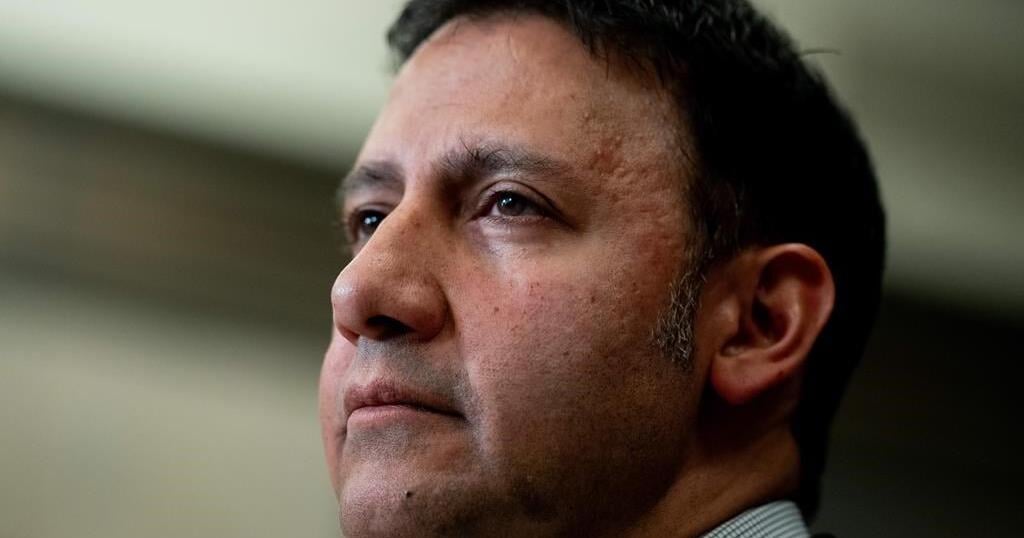OTTAWA – The administrative wing of the Prime Minister’s Office says it has new procedures for vetting federal appointees following concerns it failed to search online posts made by the incoming head of the Canadian Human Rights Commission.
Birju Dattani, former executive director of the Yukon Human Rights Commission, was appointed chief commissioner in June and is to take up the role in August for a salary of between $330,000 and $390,000.
After his appointment was announced, Jewish organizations raised concerns about the screening process and posts he had made about Israel while he was attending graduate school under a different name almost a decade ago.
Following those concerns Justice Minister Arif Virani’s office announced it would do an independent investigation of Dattani’s “potentially troubling” statements before he starts the new position.
A spokesman for the Privy Council Office (PCO), which is responsible for vetting appointments, now says there was an “administrative oversight” during the vetting process before Dattani’s appointment.
Daniel Savoie says Dattani’s other name was not searched or given to the security agencies also involved in background checks.
The RCMP and CSIS are “now completing the necessary reviews.”
“(The PCO) has undertaken a review of its background check process in this case and has issued direction, as part of its standard operating procedures, that all aliases provided should be reviewed and shared with partners for review,” Savoie said.
“This clarification is intended to prevent this from occurring again.”
He added that Dattani’s aliases were not provided to the Prime Minister’s Office or Virani’s office.
“This is consistent with our usual practice in these types of appointments, which this incident has caused us to review,” said Savoie.
Dattani has previously called the allegations against him unfounded and said he stands by his record working in human rights.
Jewish advocacy groups have called for his appointment to be rescinded, saying his response to their concerns has been insufficient.
They reference posts Dattani made online under the name Mujahid Dattani while he was a graduate student in London. The posts have now been deleted.
An appearance he made around the same time on a panel alongside a member of Hizb ut-Tahrir, an Islamic fundamentalist group, was also flagged as a concern.
Dattani has said that in 2014 he shared an article titled Palestinians are Warsaw Ghetto Prisoners of Today, but previously told both CBC News and The Globe and Mail he did not agree with its argument.
He also rejected suggestions he posted articles comparing Israel to Nazi Germany, as one 2015 article stated he did. That post has been deleted.
Dattani is not only the first racialized person to hold the role of human rights chief, but also the first Muslim.
The National Council of Canadian Muslims and a coalition of human-rights groups including the Black Canadian Civil Society Coalition have come to his defence, painting the efforts to have him removed from the post as a “witch hunt” lacking due process.
The Opposition Conservatives have demanded Dattani resign from his post or for Trudeau to take steps to remove him.
In a statement last week, deputy leader Melissa Lantsman pledged that a future Conservative government would seek to remove him if they form the next government.
This report by The Canadian Press was first published July 10, 2024.
